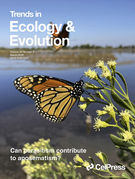
Areas of Research
Ecology and Evolution of Host-Parasite Interactions
Welcome to our research lab! We study various aspects of ecology and evolutionary biology, including the dynamics of host-parasite interactions, the evolution of immune systems, and the ecology of infectious diseases. Much of our work focuses on monarch butterflies and their parasites, asking how the milkweeds that monarchs use as caterpillars affects their susceptibility to parasite infection. We have also studied how beekeeping practices drive the spread of infectious disease in honey bees, and are currently investigating whether bees can use fungi to mitigate disease.
Genetics and Behavior
One exciting way in which animals can protect themselves against infectious diseases is by using medication. We study such behaviors in monarch butterflies, which can use toxic milkweeds as medicine, and in honey bees, where we are asking if bees can utilize fungi as medication. Another fascinating behavior we study is animal migration. Monarchs travel thousands of miles each year to reach overwintering sites in Mexico, and we study how monarchs navigate, and how this migration can help in keeping parasites at bay. As part of this work, we also study the population genetics of migratory and non-migratory monarchs around the world.
Science Communication
Communication is a key aspect of our research lab. We are passionate about effectively communicating scientific concepts to diverse audiences. From educational materials to engaging videos, we aim to make science accessible and captivating for everyone.
Our Team
Our research lab has a diverse team with members from different backgrounds. Over the years, we have had team members from many countries, including the Netherlands, United States, France, China, Taiwan, Iran, England, India, Saudi Arabia, Spain, and Nigeria. Our team generally consists of research specialists, postdocs, PhD students and undergraduate students.

Former Team members
Postdocs: Chris Catano, Scott Villa, Ania Majewska, Venkat Talla, Kandis Adams, Lewis Bartlett, Travis Dynes, Leiling Tao, Justine Lyons, Thierry Lefèvre
PhD Students: Mackenzie Hoogshagen, Gabe DuBose, Mitchell Kendzel, Erica Harris, Signe White, Wen-Hao Tan, Travis Dynes, Mary Bushman, Amanda Pierce, Zach Lynch, Eleanore Sternberg
Masters Students: Gayatri Sekar, Andrew Mongue, Ivan Shoemaker, Dylan Grippi
Research Specialists: Zoe Zimmerman, Lydia Fuller-Hall, Joselyne Chavez, Tolu Babalola, Camden Gowler, Andrew Mongue, Rachel Rarick
Undergraduate Students: Samvidha Meka, Marlyne Gonzalez, Lydia Fuller-Hall, Tristan Olpin, Markelle Worrell, Anushka Basu, Jacob Kim, Ali Ebada, Rayshaun Pettit, Ella Zhao, Kieran Kelly, Ashley Williams, Karl Protil, Wajd Alaidrous, John Rolfes, Mahal Bugay, Ezinne Nwadinobi, Ava Salmi, Abby Hotaling, Kristen Eichamer, Becca Nation, Mahal Bugay, Alicia Johnson, Chengwei Lo, Jessica Cai, Dametris Osbourne, Carl Dalmeus, Destane Garrett, Sasha Iwamoto, Aamina Ahmad, Kevin Hoang, Michelle Tsai, Itai Doron, Yiwen Li, Sarah Kuehl, Maaz Ahmed, Roy Kucuk, Jessica Nguyen, Kunsang Tsering, Emmanuel Arega,Emma Cornejo, Hannah Klein, Ahmed Aljohani, Grace Chlebove, Andrew Pahnke, Hannah Soloff, Gwen Kirschke, Elizabeth Sun, Krish Khurana, Sam Marrack, Isabella Cantor, Miles Hollimon, Yaw Kumi-Ansu, Kristoffer Leon, Andrew Mongue, Camden Gowler, Marie Bangura, Charisma Mylavarapu, Elizabeth Moore, Yamini Potini, Milan Udawatta, Rohini Swamy, Rebecca Wang, Shahbadul Faraz, John Joyave, Amanda Rawstern, Sarah Sonny, Carlos Lopez, Ashley Darar, Hui Li, Brandon Hedrick, Junjian Huang
















